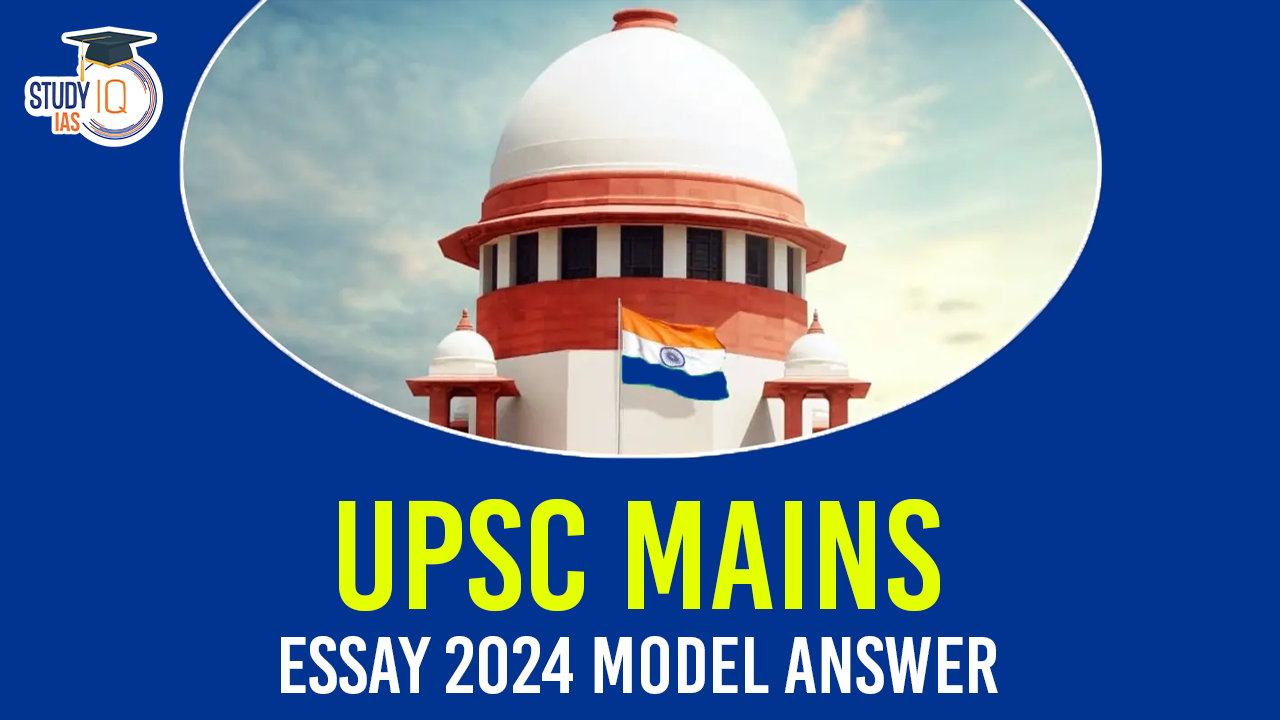3. There is no path to happiness; Happiness is the path
Approach:
- Introduction – explain what is happiness (subjective in nature) Or can start with an anecdote
- Bridge between introduction and body – Talk about many meanings of happiness. Different sources and aspects of happiness- religious, societal, philosophical,Economical etc.
- Challenges to happiness- Consumerist culture, social media, impact of globalisation etc.
- How does one start practising happiness in daily life
- Conclusion
Introduction:
- Anecdote– A small story – In today’s fast-paced world, the pursuit of success is often synonymous with material achievements. Many people are taught from a young age that the road to happiness is paved with academic success, a prestigious job, and the accumulation of wealth, status, and possessions. This mindset is deeply ingrained, and as a result, individuals often find themselves in an endless race—studying hard to secure a high-paying job, working long hours to afford a big house or a luxury car, and constantly striving for more, believing that each new milestone will bring them closer to lasting happiness. Consider the tragic case of an Ernst & Young (EY) employee in India, who passed away due to overwork. This story serves as a powerful reminder that happiness is not something we can chase after through material means. Instead, it is something we cultivate within ourselves, in how we live our lives day to day, focusing on well-being, relationships, and personal fulfilment rather than just professional or financial achievements.
What is happiness
- Spiritual happiness: Spiritual happiness often manifests through a deep sense of peace and fulfilment that transcends material wealth and external circumstances.
- Example: Consider a community leader who dedicates their life to serving others, Alok Sagar, an ex-IIT Delhi professor, left his lucrative job in 1982 to serve tribals, work for upliftment of women and stay connected to nature.
- Psychological happiness: often referred to as subjective well-being, is characterised by an individual’s perception of their life satisfaction and emotional states. It encompasses positive emotions, life fulfilment, and the absence of negative emotions.
- Example: Consider an individual who practises mindfulness and gratitude. By regularly reflecting on the positive aspects of their life and engaging in activities that bring them joy—like spending time with loved ones, pursuing hobbies, or volunteering—they cultivate a sense of fulfilment.
Body:
Importance of looking at happiness as a way of life , rather than the end goal itself.
- Religious/ Philosophical aspect- Buddha’s middle way path; the teachings of Srimad Bhagwat Geeta. Aristotle – happiness is the byproduct of living a virtuous life. Living in the present and gratitude is real bliss. Attainment of moksha is the end goal of life.
- Psychological aspect of happiness- wherein living in the present is the approach to lead a happy life eg; Brahma kumaris; Mindfulness etc.
- Societal aspect-
- Ancient society- the human virtues such as kindness, peace, contentment, charity, non violence, respect to elders, and love towards youngsters, animals etc. More of value based & pleasures of everyday life.
- Modern aspect- success in material words is nowadays associated with happiness.
- Good health- balanced physical; emotional and mental health is the key to happiness. As mentioned in jaina philosophy- “ pratham sukh nirogi ka”.
- Relationships- harmonious personal, familial relationships provide a sense of belongingness that adds up to happiness.
- Economical aspect– prosperity was aimed to be shared with families, society ( Charity/Daan) was associated with happiness. Many philanthropists do charity for mankind such as Gates foundation, Azim Premji, TATAs etc.
However, nowadays there are several challenges to happiness
- Rising consumerist culture- as said by Gandhiji ‘The world has enough for everyone’s need, but not enough for everyone’s greed”. Top 1% of India’s population owned more than 40.5% of the country’s wealth. The bottom 50% of the population, which is around 700 million people, owned about 3% of the total wealth. (Oxfam 2021).
- Social media impact– constant comparisons, peer pressure, have made today’s youth on the brink of depression. WHO ( Globally, 1/7 every 10-19-year-olds experiences a mental disorder (13%) of the global burden of disease in this age group.Depression, anxiety and behavioural disorders are among the leading causes of illness and disability among adolescents. Suicide is the 4th leading cause of death among 15-29 year-olds.
- Corruption of values- due to increasing nuclear family culture in urban centres and lack of intersectionality of generation among the family members promoting increasing crime rates. Eg 12 year old killed his mother when stopped playing games.
- Increasing violence – domestic violence e.g. Shadow pandemic during Covid time.
- Rising culture of Conditional Happiness– in modern society as it majorly hinges on external factors like wealth, success or status. This often traps the individual in the never ending cycle of desire and dissatisfaction.
Hedonic treadmill- it says once the basic needs of the human are fulfilled such as food, shelter and security, additional wealth hardly or marginal impact on overall happiness.
How does one starts to practise cultivating happiness in Everyday Lives-
- Practising Gratitude- gratitude is the core human value. One should be thankful for whatever things we have, one can shift attention from what one does not have.
- Practising mindfulness- being in the present, becoming aware of the quality of thoughts, emotions, environment etc. one can appreciate the richness of each moment.
- Embracing failure- failure is an inevitable part of life, learning to embrace it with dignity is the key to finding happiness . Setbacks are always seen to be a foundational pillar of success in the future endeavours of life.
Conclusion
Thus, there is no path to success; happiness is the path itself ,reflecting the transformative way of thinking and taking life. Instead of happiness being looked at as an end goal, it must be seen as being content in the present.


 UPSC Geo Scientist Pre Result 2025 Out, ...
UPSC Geo Scientist Pre Result 2025 Out, ...
 UPSC Malayalam Literature Syllabus For I...
UPSC Malayalam Literature Syllabus For I...
 UPSC IFS Interview 2024 Schedule Releas...
UPSC IFS Interview 2024 Schedule Releas...





















